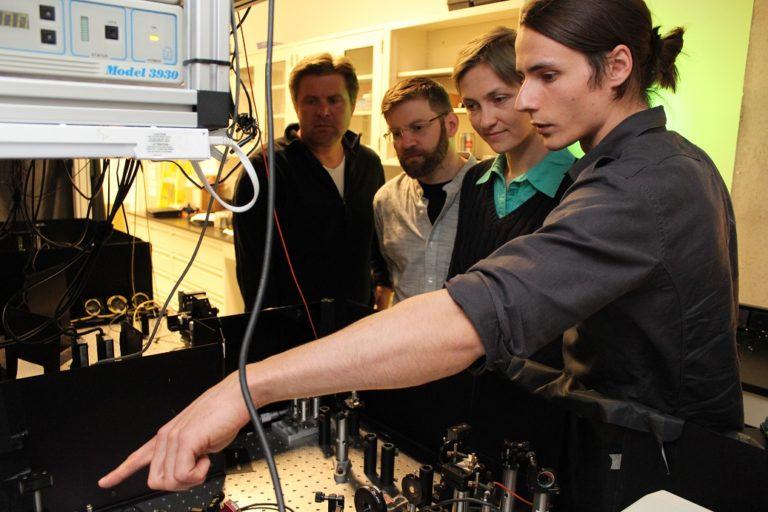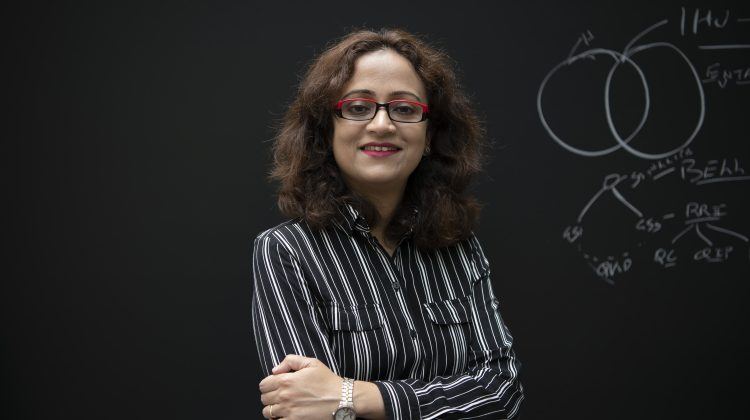Do cause and effect work differently in the quantum world?
Researchers at Perimeter Institute and the Institute for Quantum Computing find quantum causality is “much richer than in the classical world.”

What we experience as cause and effect in our everyday world may work in a profoundly different way in the subatomic realm of quantum mechanics, according to new work published by researchers at Perimeter Institute and the Institute for Quantum Computing (IQC) at the University of Waterloo.
This finding builds on research the team published in 2015, which demonstrated that certain kinds of correlations in the quantum world actually do imply causation.
There are different kinds of causal mechanisms. You can think of it like the difference between flipping a coin to decide whether to have root beer or ice cream, and deciding to mix both for a float. Causal mechanisms can be mixed probabilistically, meaning that one act or another happens (you either have the root beer or the ice cream); or causal mechanisms can be mixed physically, so that both happen simultaneously (hello root beer float!).
The research team, consisting of Robert Spekkens of Perimeter Institute, Canada Research Chair in Quantum Optics Kevin Resch, and PhD students Jean-Philippe MacLean and Katja Ried, found a new kind of physical mixture of causal mechanisms, in which the mechanisms act quantum-coherently with one another.
The new paper in Nature Communications, Quantum-coherent mixtures of causal relations, explains how the team discovered a way to measure and explain the correlations of these quantum-coherent mixtures.
- Read the full story about it here at the Institute for Quantum Computing.
The work builds on research published in Nature Physics in 2015 that showed that certain kinds of quantum correlations do imply causation – even without the kind of active intervention that classical variables require.
- Read about that earlier research here on InsideThePerimeter.ca.
Causality is a fundamental concept for those studying epidemiology, genetics and social sciences and the idea of disentangling correlations for causation is very important. “We’ve discovered that the causal structures that are allowed in the quantum world are much richer than in the classical world,” said MacLean, a PhD student with IQC and the Department of Physics and Astronomy. “We don’t know this yet, but there are certain things that it could entail for other fields.”





















































































